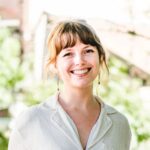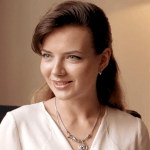We were excited to fund this Solidarity Project because it supports the goal of building more inclusive and diverse communities. By empowering underrepresented groups through debate, the project helps young people develop critical thinking and citizenship skills, while also boosting democratic participation in the Netherlands.
Inclusive debate and feedback: New democratic role models for the next generation
‘Inclusive debate and feedback: New democratic role models for the next generation’ is a project aimed at transforming youth debate culture in the Netherlands. A group of young volunteers, supported by the organisation Debate Union, worked to teach debate skills, inclusive debate culture, and debate jury training to young people from diverse cultural and educational backgrounds typically underrepresented in debates, including those from smaller towns, vocational schools, and even Dutch-speaking young people from Belgium.
Debate is kind of seen as an elite sport, which we don’t think is true. So we thought – okay, how can we maybe make the debate more inclusive?
In this interview, Madelon Kunst, project advisor for ‘Inclusive Debate and Feedback’, reflects on the project’s journey to break barriers in debate culture and open doors for underrepresented groups.
Could you start by telling the story of how the project began?
Our organisation, DebatUnie, specialises in organising debate events and providing debate training. We have a small team and then a very large group of volunteers. One particular group of young volunteers, who were already organising events, wanted to do something more. At that time, we learned about the ESC Solidarity Projects, and so we asked that group if they were interested in doing such a project. After the initial discussion, we helped them write the application, coached them along the way, and served as their contact with the Erasmus+ National Agency.
And how did you align the goals of the Solidarity project with that of the debate society?
While anyone can become a part of the debate process, it is still kind of perceived as an elite sport. It’s not, but the main part of our volunteer group consists of young people from the larger cities, mostly university students. So our idea for the Solidarity Project was to make debate more inclusive, to reach young people outside of the large cities, from different cultural and educational backgrounds. Most of the activities took place in the Netherlands, but we also wanted to reach out to some Old-Dutch-speaking young people from the Flanders region of Belgium.
How did you organise the project, and did you face any challenges?
The group of volunteers who ran the project was already well-experienced in organising events. They had their own regular meetings for brainstorming and task allocation, both online and in person, so running this project fit perfectly into their routine. Online communication took place through emails, WhatsApp group chats, and Discord. Someone from our organisation would join them as a coach and talk about their progress every now and then. We used our existing network to reach out to other organisations, so it was pretty straightforward.
The most challenging aspect was reaching out to people in Belgium, mostly because it was another country, and we did not have a partner there to delegate that task. We did eventually have one session there. However, to better attract people from another country would require a separate project and a partner organisation.
What approach did you use to attract participants from different groups?
We already had a large network of schools and youth organisations, so we contacted them. We used fliers, emails, and newsletters. Then, once new participants are on board, social media like Instagram and, back then, Facebook, is a good way to keep them updated and to invite them to new events.
It was also important to motivate people to join, so we promoted the idea that it was not simply an interesting training for free, but also a fun way to meet other young people, eat some pizza together, and talk about topics that are interesting to them.
Logistically, we tried to hold these events mainly in the central regions of the country, and in locations like libraries or universities close to the railway stations, so it would be easier for participants to come by train.
What kind of events and activities did you organise as part of this project?
The project lasted for an academic year and consisted of seven main events. These included debate training, exchange sessions on inclusive debate culture, and jury training. Overall, we wanted to train young people who were interested in debate but didn’t really have experience, as well as those who were experienced and needed more in-depth knowledge.
Who created the educational materials and conducted the training?
We used our own debate and jury training materials and coaches from our organisation. Additionally, the group of volunteers invited outside experts, who had knowledge and experience, and would bring or make their own training materials.
What was the feedback from the participants and the overall outcome of this project?
We had internal evaluation, as well as an evaluation within our existing network. Participants filled out evaluation forms and attended exchange sessions at the end of the project. Overall, the feedback was quite good – we had interesting trainings and sessions, and we successfully reached the goal of attracting more people from the groups that were not previously represented in debate. We were particularly successful in attracting new jury members with a vocational education background, and both the new and existing jury members have benefited from the project by improving their critical thinking skills. This Solidarity Project has ended, but we continue doing training sessions for young people who want to get involved in debate as volunteers or jury members. So this project really inspired us to keep going.
What advice would you give to someone willing to start a similar project?
A group of young volunteers did the project mostly on their own, and I think they were more than capable. They had already organised events before, so my advice would be to have some experience in a field related to the project to effectively plan and arrange things.
You should also consider partnering up with some sort of an organisation that has networks and knowledge on the topic. Professional support can greatly help you reach out to more people and to get more meaningful results, especially if you plan to involve people from across the border.
Project outcomes
As a result of the project, over 50 participants from underrepresented groups received debate and jury training.
The project expanded participation by engaging young people from vocational schools, smaller towns, and even Dutch-speaking regions of Belgium.
About the project
Supported by:
European Solidarity Corps / Solidarity Projects
EU Youth Programme Priority:
Participation in Democratic Life
Inclusion and Diversity
Visibility:
Visibility: The project ensured visibility through the existing DebatUnie network of schools and youth organisations, complemented by posts on Instagram and Facebook. Events were promoted via newsletters, fliers, and email communications within the network, effectively reaching diverse groups across the Netherlands and Belgium.
Organisations involved:
DebatUnie Foundation (NL)








